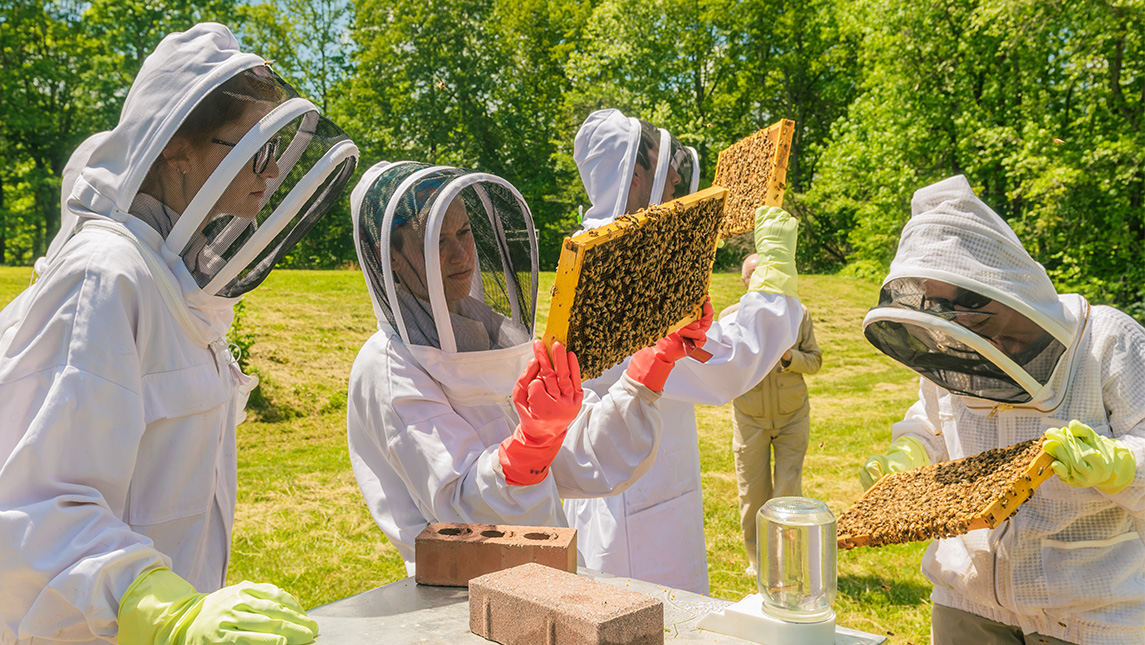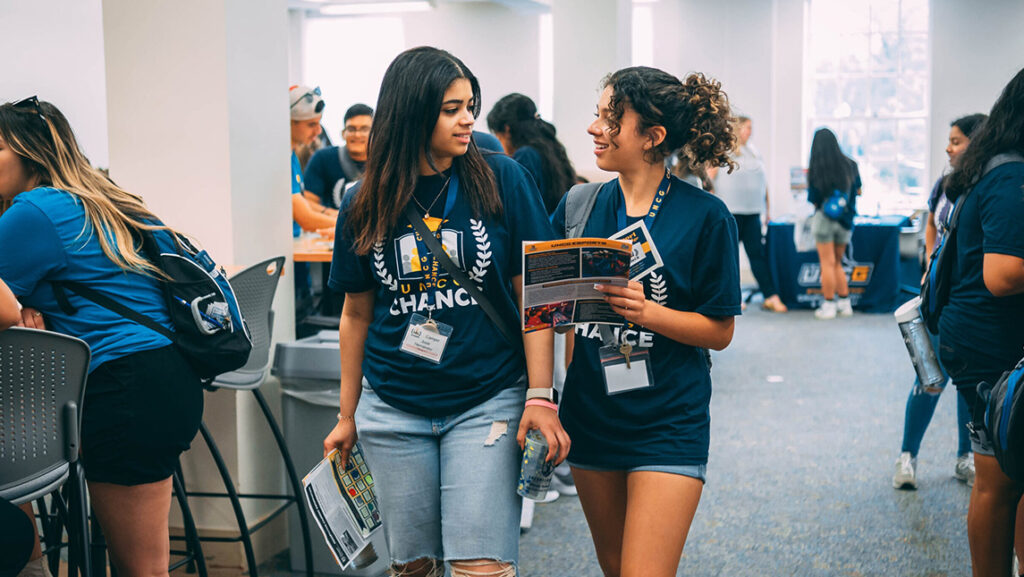UNC Greensboro has become an affiliate of the Bee Campus USA program, designed to marshal the strengths of educational campuses for the benefit of pollinators. UNCG joins cities and campuses across the country united in improving their landscapes for pollinators.
“UNC Greensboro students, faculty, administrators, and staff have long been champions for sustainable environmental practices,” says Provost and Executive Vice-Chancellor Debbie Storrs. “We are proud to be named an affiliate of the Bee Campus USA program given our many sustainability course offerings, programs, initiatives, actions, and sustainability standards. This recognition further reinforces our commitment to creating a more sustainable campus and community.”
BE(E) COMMITTED
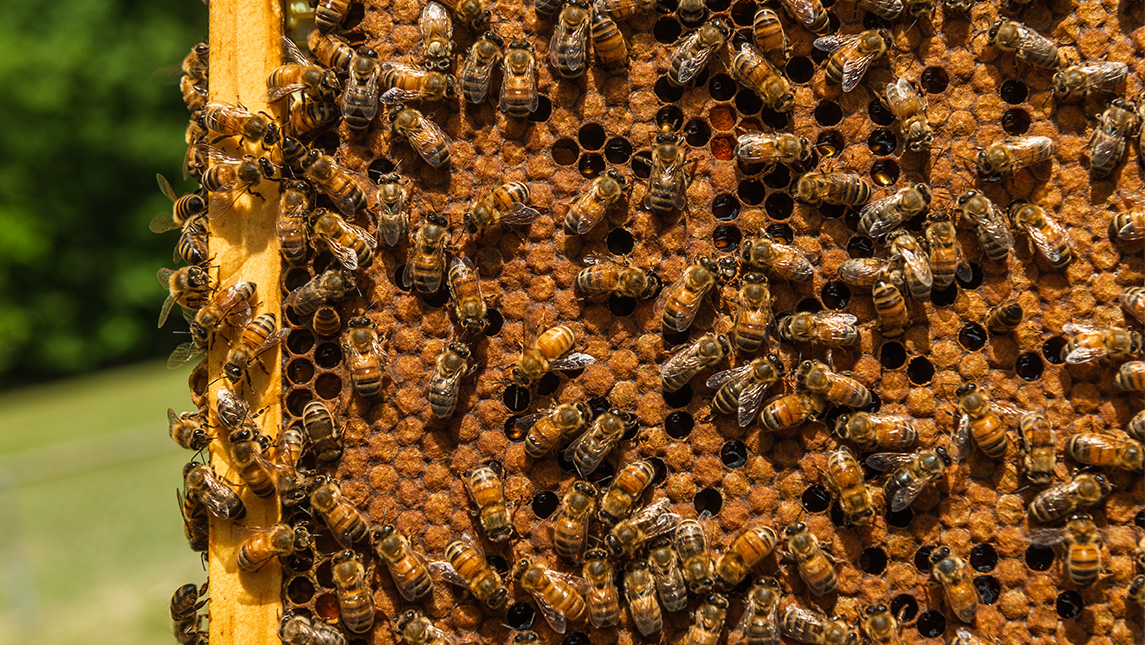
The UNCG community has worked together to study pollinator habitats. In 2019, UNCG opened its Plant and Pollinator Center – the first in the nation to focus on both plants and pollinators and to give researchers a place to examine a vast array of factors in pollinator health.
UNCG also holds a STARS Silver rating in recognition of its sustainability achievements from the Association for the Advancement of Sustainability in Higher Education. STARS, the Sustainability Tracking, Assessment & Rating System, measures and encourages sustainability in all aspects of higher education. In 2021, UNCG also earned the Tree Campus Higher Education designation for the 12th year in a row from the Arbor Day Foundation.
“We are honored to receive this designation. It recognizes the innovative and cross cutting research of our faculty and students who apply their discoveries to address bee health, which is essential to our own health and that of the planet,” says Dr. Terri Shelton, vice chancellor of research and engagement. “This is exactly what a public research university should be.”
UNCG is committed to minimizing hazards to pollinators by using nearly no neonicotinoids or other potentially dangerous pesticides. To raise awareness about the plight of pollinators, UNCG is preparing to launch a webpage that disseminates information to the campus and external communities. Those resources will include UNCG’s Integrated Pest Management Plan, a list of native plants incorporated into the campus landscape with their bloom times and habitat needs, links to student and faculty research into pollinator issues, and information about upcoming events.
POLLINATOR CONsCIOUS
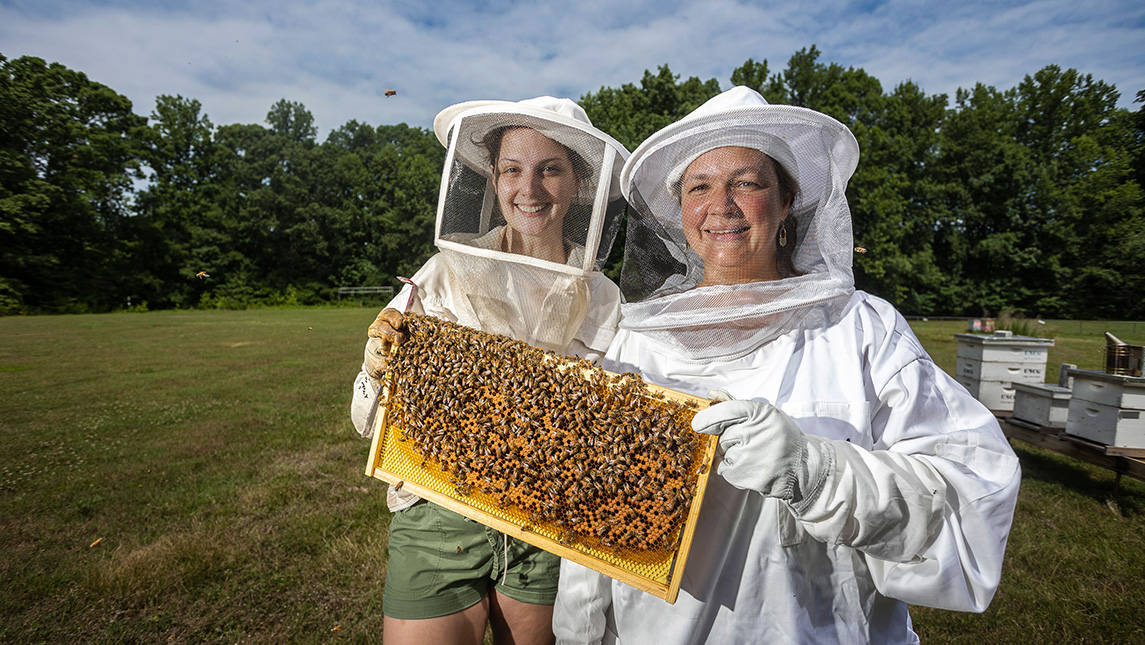
Dr. Kaira Wagoner, research scientist in the Department of Biology, is forming a small committee of students, staff, and faculty which will hold its first in-person meeting on August 30th from 1 pm to 2:30 pm in the Eberhart Conference Room (room # 310). Interested students, staff, and faculty are welcome to join. They will discuss plans to expand pollinator habitat on campus, reduce UNCG’s use of pesticides, incorporate more pollinator biology into UNCG coursework, and organize exciting service-learning events to engage UNCG and Greensboro community members in fun, pollinator-friendly activities.
Bee City USA and Bee Campus USA are initiatives of the Xerces Society for Invertebrate Conservation, a nonprofit organization based in Portland, Oregon, with offices all over the country. Bee City USA’s mission is to galvanize communities and campuses to sustain pollinators by providing them with healthy habitats, rich in a variety of native plants, and free of pesticides. Pollinators like bumblebees, sweat bees, mason bees, honeybees, butterflies, moths, beetles, flies, hummingbirds, and many others are responsible for the reproduction of almost ninety percent of the world’s flowering plant species and one in every three bites of food we consume.
“The program aspires to make people more PC—pollinator conscious, that is,” said Scott Hoffman Black, Xerces’ executive director. “If lots of individuals and communities begin planting native, pesticide-free flowering trees, shrubs, and perennials, it will help to sustain many, many species of pollinators.” According to Bee Campus USA coordinator Laura Rost, “How each city or campus completes the steps to conserve pollinators is up to them. Affiliates play to their own strengths, designing pesticide reduction plans, improving habitat, and holding events ranging from garden tours to native plant giveaways to bee trivia nights. Each campus must renew its affiliation each year and report on accomplishments from the previous year. Other institutions of higher education are invited to explore completing the application process outlined at beecityusa.org
Story by Avery Craine Powell, University Communications
Photography by Jiyoung Park
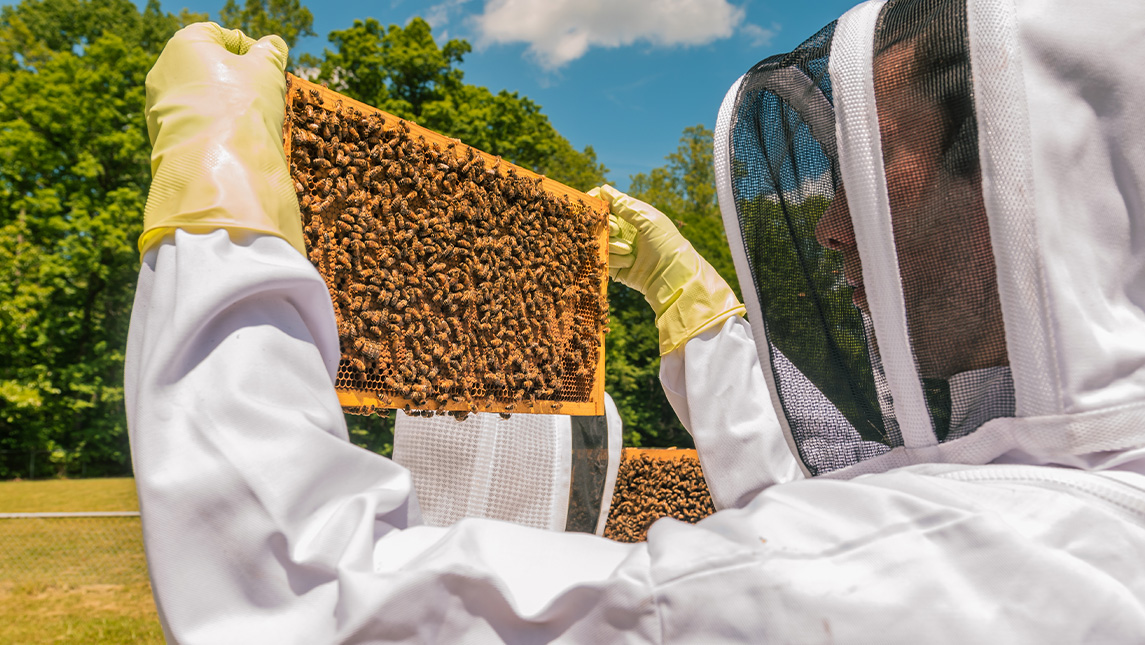
Get in on the buzz
